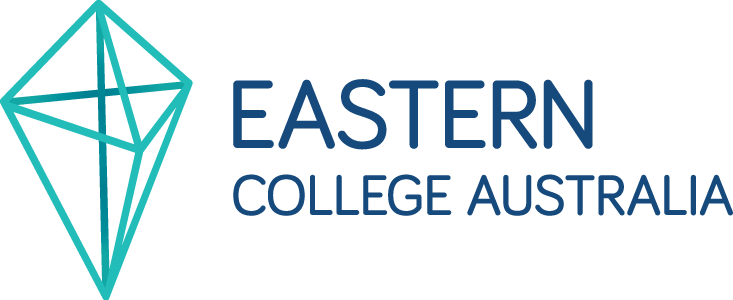The College exists in a regulatory environment that requires the development of policies to ensure it meets its responsibilities to students and staff. Procedures and guidelines are created to provide clarity and direction in the exercise of policies.
The Policy on Policy Development establishes a framework for creating and maintaining the College’s policies, procedures and guidelines.
This policy applies to all College staff members.
The College will from time to time create documents which will be concise formal statements of how the College will act in a particular area of its operation.
All College policies will be publicly accessible via the policy database. Procedures and Guidelines are accessible to staff through login to the policy database.
Policies, Procedures and Guidelines
Policies
Policies are formal statements which establish the key principles that govern College decision-making processes. Policies include details of the College’s expectations and how it will act. While some policies can stand alone, others will be accompanied by associated procedures or guidelines to explain how the policy will be implemented.
All College policies, procedures and guidelines shall:
- Be stored in the policy database.
- Maintained with version control and history of changes.
- Be approved by the designated Approving Body.
- Indicate the Policy Owner.
- Adopt a consistent formatting style.
Amendments shall be presented to the approving body in a manner which tracks changes.
All College policies shall:
- Indicate the scope of the policy, and wherever possible be aligned across both Eastern and MST.
- Be reviewed and updated at least every five years from the approval date, or more frequently if appropriate.
- Link to an associated procedure or guideline if required.
- Upon revision, the Policy Owner is responsible to ensure that all stakeholders of the policy are advised of changes, with particular emphasis on ensuring students are advised of relevant changes.
- Reference the specific legislation, regulations or standards underpinning the policy, specifically including the relevant Higher Education Standards Framework or VET Quality Framework if applicable.
Certain policies, not tied to individual regulatory requirements may be developed in common for both MST and Eastern. This shall be indicated on the portal, and any changes to common policies shall be advised to the other college's policy Owning Body.
All members of the College community must understand their responsibilities and comply with College policies. Likewise, any staff member aware of a need to update a policy, procedure or guideline due to operational or regulatory changes must flag this to the document Owner, or Policy Coordinator.
Terms of Reference
Terms of Reference may be created for committees or working groups. For the purpose of this document, they shall be treated as if they are a policy.
Procedures
A procedure provides details of the actions or steps to be taken when implementing a particular policy. Procedures shall:
- Be directly linked to any relevant policy but be a separate document;
- Explain how to implement the particular policy, detailing staff and resources required.
- Indicate date created or updated, but do not have a specified review timeframe.
When students are expected to access a Procedure the Dean of Studies shall arrange it to be a public document.
Guidelines
Guidelines will be prepared in the case where appropriate professional discretion is expected in the exercise of the policy. It shall provide descriptive guidance and philosophical frameworks, where flexible interpretation is anticipated. Guidelines do not have a specified review timeframe.
Roles and Responsibilities in Policy Development
Approving Body
The Approving Body is the Board or Committee with final authority for approving all final versions of policies (whether new or amended).
Minor revisions (for example titles, formatting, typographical errors, or hyperlinks) that do not affect the principles or provisions of the policy can be made by the policy Contact Person or the policy Editor.
Policy Coordinator
One staff role is designated responsibility for College-wide coordination of policies, ensuring timely reviews and updates are undertaken, and may make revisions on behalf of the Contact Person.
Policy Owner
The Policy Owner is the Board, Committee, or staff role that is responsible for:
- Ensuring the policy is developed in accordance with the Policy on Policy Development;
- Recommending the final version of new or amended policies for approval by the Approving Body;
- Ensuring the policy is reviewed and kept up-to-date;
- Ensuring evidence of effectiveness of the policy is collected.
Contact Person
When the Policy Owner is a committee or board then the Contact Person is usually the Chair of that body, or their designated delegate. When the policy is owned by an individual role that person is the contact. The Contact Person assists with the administration of a policy including:
- Answering questions on the application of the policy;
- Bringing the policy due for review to the timely attention of the Policy Owner;
- Ensuring approved major changes or revisions to the policy are made to the policy document
- Ensuring minor revisions (for example titles, formatting, typographical errors, hyperlinks or review dates) that do not affect the principles or provisions of the policy are made.
Editor
The Editor is a designated role that may make revisions on behalf of the Contact Person.
Policy Cycle
- Establish need – the development or revision of a College policy or procedure may result from:
- recognition of a need
- the regular cycle of policy review
- gaps in current policy coverage
- changes in legislation
- Propose Policy – research is carried out into current best practice in the sector, relevant staff are consulted, policy is drafted, Policy Owner is identified
- Policy Development – Policy Owner reviews, consults with relevant staff, edits and finalises policy ready for endorsement
- Committee Endorsement – Policy Owner endorses policy and passes to Approving Body
- Policy Approval – Approving Body approves policy and policy takes effect
- Policy Implementation and Practise
- Review and Improvement – Policy Owner regularly reviews and updates policy, ensuring any amendments are endorsed and approved.
